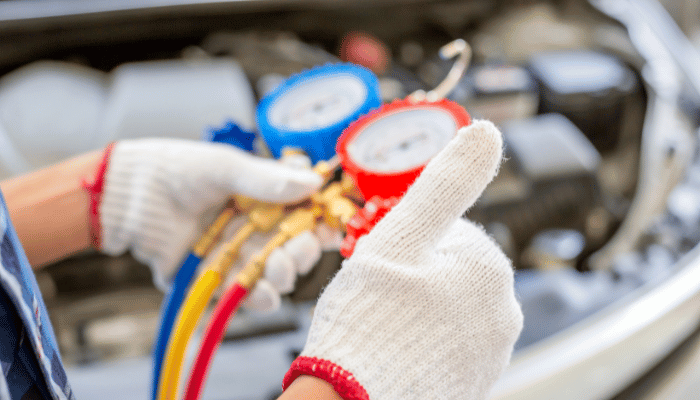As the weather starts to change, you may be wondering if your HVAC system is ready to keep your home comfortable throughout the season. One of the best ways to ensure the efficiency and longevity of your HVAC system is through regular tune-ups. In this article, we’re going to explore what goes into an HVAC tune-up, the various benefits of having them regularly, and the best time to schedule one.
Understanding HVAC Tune-Ups
An HVAC tune-up is a comprehensive inspection of your heating and cooling system to identify issues, optimize performance, and prevent potential breakdowns. During a tune-up, our skilled technicians at Energy HVAC Services inspect and service a variety of components, including the thermostat, air filter, blower motor, electrical connections, refrigerant levels, and more.

HVAC Tune-Ups
Benefits of Regular HVAC Tune-Ups
Regular HVAC tune-ups come with a host of benefits that not only enhance your comfort but also save you money in the long run:
- Energy Efficiency: Regular HVAC tune-ups can significantly improve the energy efficiency of your system, leading to lower energy bills and a reduced carbon footprint.
- Longevity: Tune-ups can extend the life of your HVAC system by addressing minor issues before they escalate into major, system-damaging problems.
- Comfort: Consistent tune-ups ensure that your HVAC system can effectively maintain the comfort level of your home, regardless of the weather outside.
- Cost Savings: By preventing potential breakdowns and costly repairs, regular tune-ups can save you a significant amount of money in the long run.
- Air Quality: Regular HVAC maintenance can improve the quality of your indoor air by ensuring clean and efficient operation, reducing the risk of mold, allergens, and other pollutants.
- Peace of Mind: Knowing that your HVAC system has been professionally maintained provides peace of mind that your home will remain comfortable throughout the year.
When to Schedule an HVAC Tune-Up
Now, you might be wondering about the best time to schedule an HVAC tune-up. While it’s generally beneficial to have your system checked at least once a year, there are certain signs that your HVAC system may need a tune-up sooner:
- Unusual Noises: If you start hearing strange sounds like rattling, humming, or squealing coming from your HVAC system, it might be crying out for a tune-up.
- Higher Energy Bills: A sudden or unexplained increase in your energy bills can be a sign of an inefficient HVAC system that needs a tune-up.
- Inconsistent Temperatures: If you notice that some rooms in your house are too hot while others are too cool, it could indicate that your HVAC system is not working efficiently and may need a tune-up.
- Frequent Cycling: If your HVAC system is turning on and off more frequently than usual, it could be a sign that it’s struggling to maintain the desired temperature and could benefit from a tune-up.
- Bad Odors: If you start smelling musty, burning, or other unpleasant odors when your HVAC system is running, it might be time for a tune-up to identify and resolve the issue.
- Poor Air Flow: If you notice reduced airflow from your vents, it could be a sign of a blockage or issue with your blower motor.
Conclusion
In conclusion, regular tune-ups for your HVAC system are incredibly beneficial. They not only enhance the system’s efficiency but also prolong its lifespan, ensuring your home stays comfortable year-round. When you set up a tune-up with Energy HVAC Services, you’re making sure your system is in top shape and prepared for all kinds of weather.
Don’t wait until a minor issue turns into a major problem – schedule a tune-up today and enjoy the benefits of a well-maintained heating and cooling system. Contact Energy HVAC Services to set up your appointment today.
Frequently Asked Questions
What are the signs that your HVAC system needs a tune-up?
Your HVAC system might need a tune-up if it's making odd noises, not heating or cooling evenly, causing higher energy bills, or turning on and off more often than usual. Additionally, if your HVAC system has not been serviced in over a year, it's likely due for a tune-up.
How does a tune-up improve the efficiency of an HVAC system?
An HVAC tune-up improves system efficiency by ensuring all components are functioning correctly, cleaning or replacing air filters, calibrating the thermostat, and checking for any leaks or blockages in the ductwork.
What are the potential consequences of skipping regular HVAC tune-ups?
Skipping regular HVAC tune-ups can lead to decreased system efficiency, resulting in higher energy costs and a less comfortable indoor environment.
More Articles:





